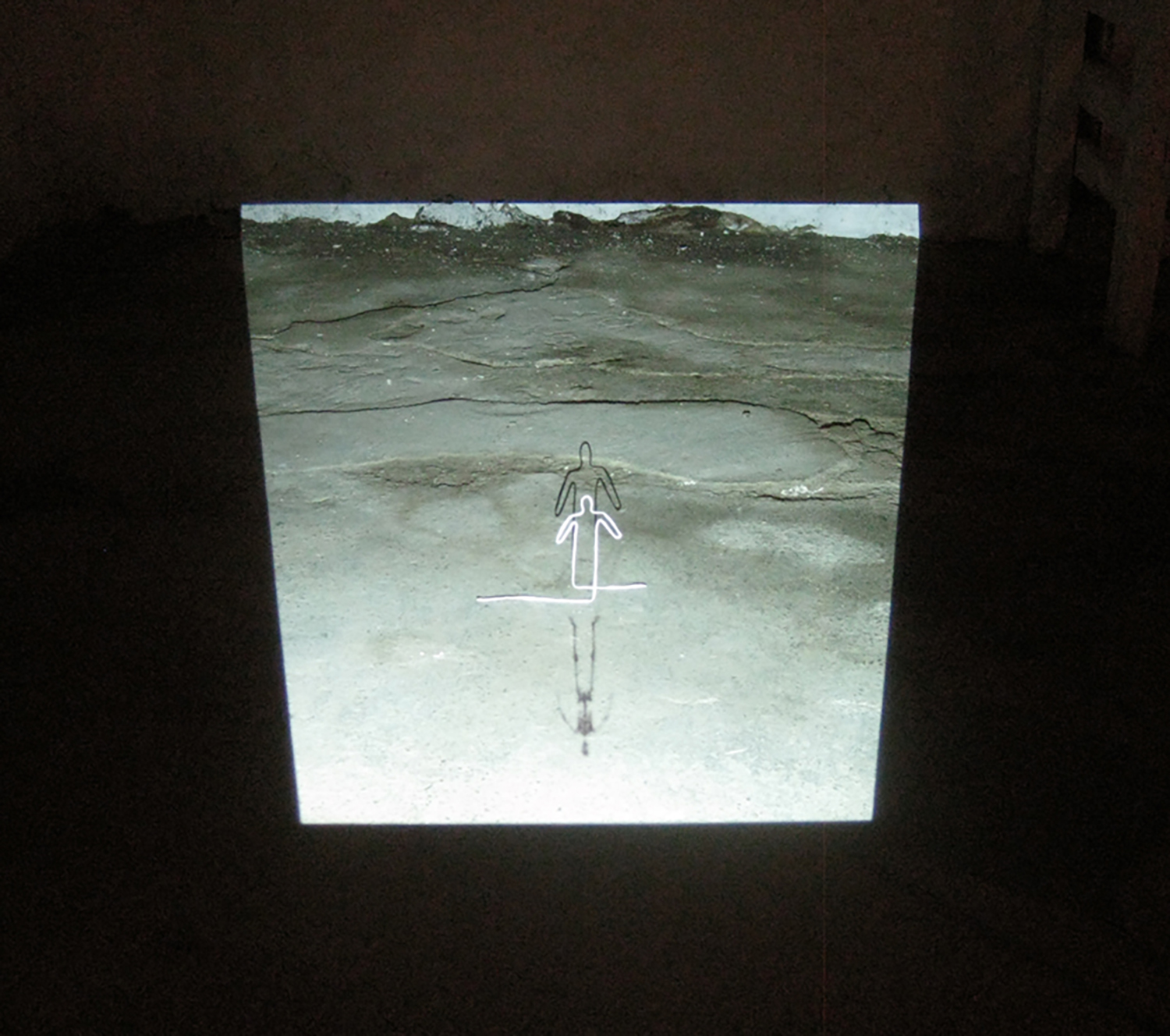



















Zombies, identified is an exploration of the human body in an in-between, or contradictory state, employing various art media. Interweaving discomfort and beauty, zombie narratives can open up conversations about the most vulnerable and grotesque aspects of being human. These projects set up a framework for "zombie" that places it between several countervailing pairs: alive and dead, the pronouns “he/she” and “it,” individual and group, legible and illegible. The hope is to take on the notion of the zombie, in an attempt to exonerate this portrayal of in-betweenness from negation or stigmatization.

The primary manifestation of Zombies, identified takes the form of an evolving slideshow lecture. The presentation uses film clips, animations, paintings, props, and diagrams to pose questions and criticisms about contemporary uses of the word "zombie." The aim is to draw focus toward the zombie as a learning tool about the grotesque and ephemeral aspects of being human, rather than a sub-human other used to promote negative stereotypes. The in-betweenness of the zombie is celebrated, putting particular emphasis on bodily boundaries and the threshold between individual and group. An essay derived from the slideshow can be found book: Zombies in the Academy. Further writing on this subject is documented in a thesis paper Zombies, identified, which can be found in the California College of Arts library.
Zombies, identified has been presented at the Brooklyn Institute for Social Research, San Francisco State University, California College of the Arts, Tuesday Salon in San Francisco, The San Francisco Urban School, Observatory in Brooklyn, Cal Arts, Unspeakable Projects in San Francisco, Macarthur b Arthur in Oakland, The San Francisco Dork Club, the Wassaic Project, Queens Nails in San Francisco, ODC in San Francisco, the Exploratorium Helix site, and the Portland ‘Pataphysical Society, all between 2010-2016.

Wire, acrylic paint, pipe cleaners, tape, projector. Installed at the Luther Barn, Wassaic Project, NY, 2010

H: 90 in. x W: 58 in. x D: 20 in. Wood, Fabric, Acrylic, Metal, Snake skin, Cardboard

"Zombies, identified" Slideshow/Lecture, performed by George Pfau at BAASICS.5 Monsters, ODC, San Francisco, 2014. A 14 minute version of Pfau's presentation, featuring paintings, diagrams, film stills, and more.

Video documentation of George Pfau's sculptural installation in the Luther Barn at the Wassaic Project, New York. Wire, pipe cleaners, tape, acrylic paint, projected selection lines, shadow.

"Selected Abjection" makes use of footage from the videogame "Metal Slug 3" (2000) in which zombies endlessly release bodily ooze. The image of the zombie creates an exaggerated cartoon of how human beings are constantly leaving a trace upon their surroundings. Dotted lines are employed as a way of emphasizing the influx boundary between a body and its environment.

This video isolates a sequence from the Super Nintendo videogame entitled "Zombies Ate My Neighbors" (1993). Guided by artificial intelligence, zombie bodies merge complicating boundaries between one body and another. The background from the game is removed. Moving dotted lines reminiscent of the selection tool in Adobe Photoshop have been added.
Editing: Denise D'Amico, eremy Solterbeck,

This video was inspired by various occurrences in zombie films of a back-lit, silhouetted figure. The body in the video is in-flux with its environment, in the spirit of Mikhail Bakhtin’s quote about the grotesque: “the body swallows the world and is itself swallowed by the world.” The perimeter of its body is never fixed. At times, the light folds around the arms, legs and neck in a way that shows them as thin wavering lines. The silhouette requires the body’s surface contour to be the defining visual evidence of the figure as a human or a zombie.
Videography: Kristina Willemse
Editing: Hannah Ireland

"Whispering Beast (rising/guided)" is a video of a cream colored dog and her shadow. The video emphasizes the transition between four-legged to two-legged standing.
Videography: Kristina Willemse
Thanks to: Francis Metcalf, Chomsky, Hannah Ireland.